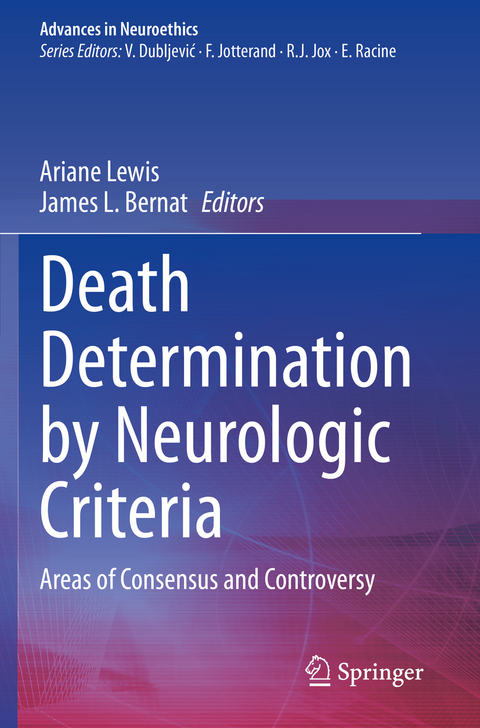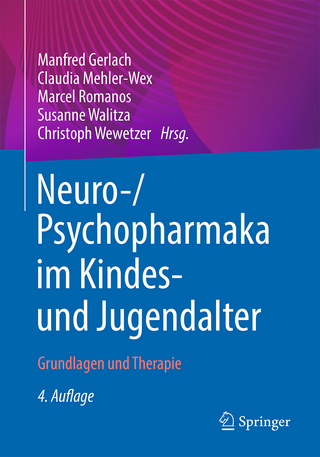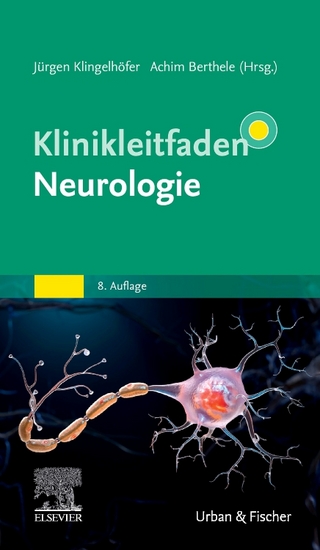
Death Determination by Neurologic Criteria
Springer International Publishing (Verlag)
978-3-031-15949-7 (ISBN)
Dr. Ariane Lewis is Professor of Neurology and Neurosurgery and the Director of Neurocritical Care at NYU Langone Medical Center. She served on the Steering Committee for the World Brain Death Project. She was an observer on the Uniform Law Commission Study Committee and Drafting Committee on Updating the Uniform Determination of Death Act and an International Advisor to the Canadian Critical Care Society Definition and Determination of Death Committee. She was Past-Chair of the Neurocritical Care Society Ethics Committee and is a member of the American Academy of Neurology Ethics, Law and Humanities Committee and the American Academy of Neurology Brain Death Working Group. She was recognized as a Fellow of the American Academy of Neurology and a Fellow of the Neurocritical Care Society for her clinical and scholarly leadership in neurology and neurocritical care.
James L. Bernat, M.D. is Professor of Neurology, Active Emeritus at the Dartmouth Geisel School of Medicine where he has been Professor for 33 years. Formerly, he was the Louis and Ruth Frank Professor of Neuroscience at Dartmouth. He is the former Chair of the American Academy of Neurology Ethics, Law & Humanities Committee. He is a fellow of the American College of Physicians, the American Academy of Neurology, the American Neurological Association, and the Hastings Center. He served as an observer on the Uniform Law Commission Study Committee and Drafting Committee to update the Uniform Determination of Death Act. His principal book is Ethical Issues in Neurology, 3rd ed. (Lippincott Williams & Wilkins, 2008). Over the past 40 years, he has authored numerous articles and chapters on death determination by neurological criteria and the definition of death.
Introduction/History of Death Determination by Neurologic Criteria.- Part I: Philosophical/Conceptual.- Arguments Supporting Neurologic Criteria to Determine Death.- Arguments Rejecting Neurologic Criteria to Determine Death.- Arguments Supporting the Whole-Brain Criterion.- Arguments Supporting the Brain Stem Criterion.- Loss of Hypothalamic Function is Required to Determine Death by Neurologic Criteria.- Loss of Hypothalamic Function is not Required to Determine Death by Neurologic Criteria.- Part II: Medical.- Intra/International Variability in the Determination of Death by Neurologic Criteria.- Controversies in Determining Death by Neurological Criteria in Pediatric Patients.- Arguments in Favor of Requiring the Absence of Brain Circulation to Determine Death by Neurologic Criteria.- Arguments Opposing the Requirement to Demonstrate Absence of Blood Flow to Determine Death by Neurologic Criteria.- Reports of "Recovery" from Death by Neurologic Criteria.- Observation Time Prior to Determination of Death by Neurologic Criteria.- Temperature Considerations in the Determination of Death by Neurologic Criteria.- How Many Evaluations are Required to Determine Death by Neurologic Criteria?.- Part III: Scientific.- Research Questions about Declaration of Death by Neurologic Criteria.- Research on Patients Declared Dead by Neurologic Criteria.- The Impact of Restoring Postmortem Mammalian Brain Circulation and Cellular Functions on the Declaration of Death by Neurologic Criteria.- Part IV: Legal.- The Content of Laws on Declaration of Death by Neurologic Criteria.- Is Consent Required for Physicians' Determination of Death by Neurologic Criteria?.- Legal Response to Religious and Other Objections to Declaration of Death by Neurologic Criteria.- Death by Neurologic Criteria is a Legal Fiction.- Legal Considerations on the Declaration of Death by Neurologic Criteria in the Pregnant Patient.- Part V: Religious.- Christian Perspectives on Death by Neurologic Criteria.- Islamic Perspectives on Death by Neurologic Criteria.- Jewish Perspectives on Death by Neurologic Criteria.- Part VI: Ethical/Social.- Public Views on Death by Neurologic Criteria.- Cultural Considerations in the Declaration of Death by Neurologic Criteria in Asia.- Cultural Considerations in the Declaration of Death by Neurologic Criteria in Africa.- The Argument for Personal Choice in Defining Death.- The distinction Between Death Declaration and Death Determination Using Neurologic.- Criteria.- Why Families Object to Declaration of Death by Neurologic Criteria.- Arguments Favoring Continuation of Organ Support when Families Object to Declaration of Death by Neurologic Criteria.- Arguments Opposing Continuation of Organ Support when Families Object to Declaration of Death by Neurological Criteria.
| Erscheinungsdatum | 04.01.2024 |
|---|---|
| Reihe/Serie | Advances in Neuroethics |
| Zusatzinfo | VII, 498 p. |
| Verlagsort | Cham |
| Sprache | englisch |
| Maße | 155 x 235 mm |
| Gewicht | 853 g |
| Themenwelt | Medizin / Pharmazie ► Medizinische Fachgebiete ► Neurologie |
| Schlagworte | Brain-death • brainstem death • critical care • end-of-life • ethics • Family • Law • Public Policy • Religion |
| ISBN-10 | 3-031-15949-7 / 3031159497 |
| ISBN-13 | 978-3-031-15949-7 / 9783031159497 |
| Zustand | Neuware |
| Informationen gemäß Produktsicherheitsverordnung (GPSR) | |
| Haben Sie eine Frage zum Produkt? |
aus dem Bereich


